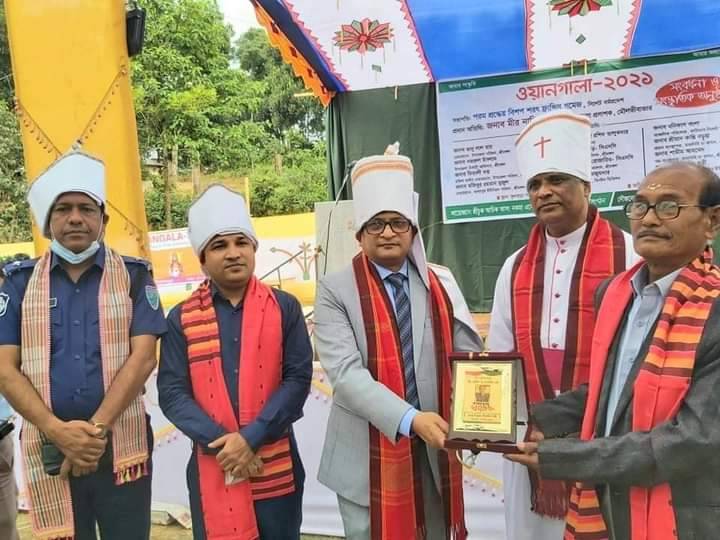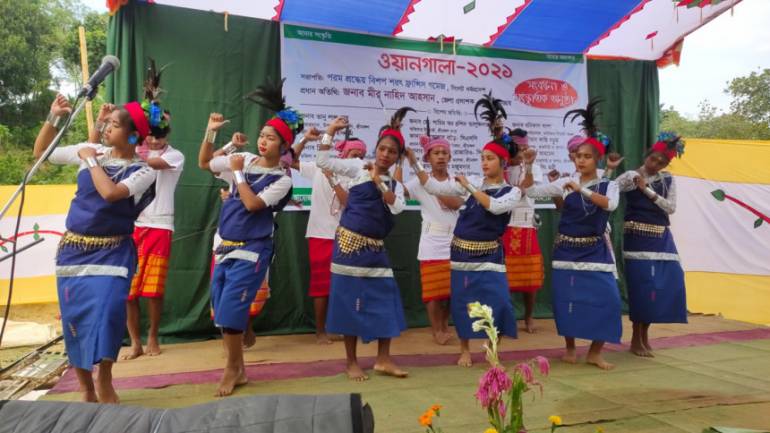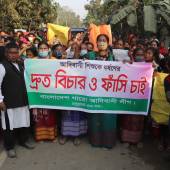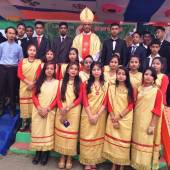Matriarchal Catholic community celebrates Wangala harvest festival

Bangladesh's Matriarchal Garo community celebrated the Wangala festival at St Joseph the Worker Church, Sreemangal in Fulcharra tea garden, Moulvibazar on November 14.
The Garo people are a matrilineal tribe living in Bangladesh and the Indian states of Assam and Meghalaya. In Garo communities, the mother is the head of the family, children take their mother's surname, and only daughters can inherit family property.
The Garo community celebrates the Wangala festival to praise God for a good harvest, hoping for a better one next year. Garo people pray for their children and families to remain well and for good fortune.
The Garo faithful offer new grain to God in thanksgiving and look forward to blessing throughout the year.
Bishop Shorot Francis Gomes of Sylhet diocese was the main celebrant for the festival mass. The Garo Catholic community celebrated the Wangala festival on the feast of Christ the King.
"Christ is our King. He is our leader and protector. We as his follower must give respect and gratitude to Him," said Bishop Shorot Francis Gomes during his homily.
"There are different kinds of powers always threatening us in this world," Bishop Gomes said. "But God is always with us – as a savior protector and king."
Father Mrinal Mrong CSC, the associate pastor of Sreemangal, noted that "the Garo people in Bangladesh are economically poor, but this feast gives them little joy despite so many problems."
Wangala festival is a joyful gathering for the Garo people to express their joy by singing, dancing and eating together.
Mr. Khitish Areng, president of Sreechuk Achik Asong Nakma Association, said, "During the festival, our Garos' express their gratitude to Misi Saljong or the God of grains, for blessing the community with a good harvest."
"The Garo faithful are mainly dependent on agro-economy. We do not use any agricultural produce before thanking Misi Saljong," Khitish Areng said.
Mr. Partho Hajong, president of Sreechuk Youth Garo Organization, said, "Young and old people wear they're traditional dressed like Dakmanda, Daksari or Gando and dance to the music played on long, oval-shaped drums called Dama."
There were performances of traditional dances like Katta Doka (talking in a singing style), Ajea (Garo folk song), Dani Doka (describing Wangala by singing), and Chambil Mesaa (a kind of solo dance also known as Pomelo).

Radio Veritas Asia (RVA), a media platform of the Catholic Church, aims to share Christ. RVA started in 1969 as a continental Catholic radio station to serve Asian countries in their respective local language, thus earning the tag “the Voice of Asian Christianity.” Responding to the emerging context, RVA embraced media platforms to connect with the global Asian audience via its 21 language websites and various social media platforms.













